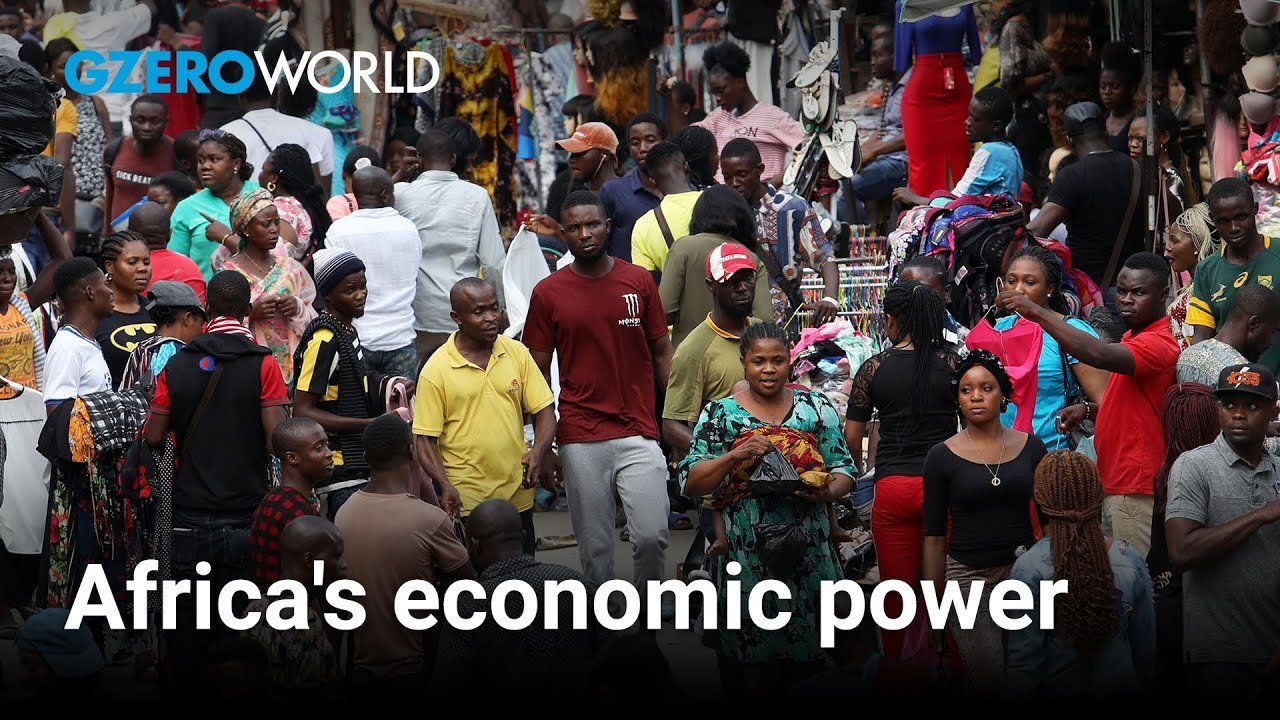GZERO World Clips
Africa's economy could rival China or India, says WTO chief Ngozi Okonjo-Iweala

Africa's economy could rival China or India, says WTO chief Ngozi Okonjo-Iweala | GZERO Media

The African continent has a population of 1.4 billion people, but it imports more than 90% of its medicines and 90% of its vaccines. WTO Director General Ngozi Okonjo-Iweala says the time has come to open up the continent to globalization and encourage businesses to invest in African countries.
On GZERO World with Ian Bremmer, Okonjo-Iweala makes the case for decentralizing and diversifying global trade to open up new markets, bring Global South countries into the mainstream of the world economy, and reduce reliance on any one country for crucial goods and services.
Africa hasn’t yet globalized, but when it does fully integrate into the world economy, it could create a domestic market of over a billion people that rivals that of China and India.
“Africa has about 3% of world trade, and that’s too small,” Okonjo-Iweala says. “When, not if, that experiment really gets going of Africans integrating better with themselves and trading, that is automatically very attractive for trade for the world.”
41.5%: The proportion of Havana’s garbage trucks that were operational this month, according to state-run media, as Cuba’s fuel crisis prompts a garbage crisis.
Sovereignty has become one of the most powerful, and least defined, words in tech policy. At the 2026 Munich Security Conference, SAP global head of government affairs, Wolfgang Dierker, explains why governments and enterprise customers are demanding more control over their data, cloud infrastructure, and AI systems amid rising geopolitical uncertainty.
On the sidelines of the 2026 Munich Security Conference, Annemarie Hou, Executive Director of the United Nations Office of Partnerships, joined Tony Maciulis to discuss the power of women leaders in global decision-making.
In a new Global Stage livestream from the 2026 Munich Security Conference, New York Times White House and national security correspondent David Sanger moderates a conversation with Ian Bremmer (President & Founder, Eurasia Group and GZERO Media), Brad Smith (Vice Chair & President, Microsoft), Benedetta Berti (Secretary General, NATO Parliamentary Assembly), and Wolfgang Dierker (Global Head of Government Affairs, SAP) on how technology and defense are colliding in real time.